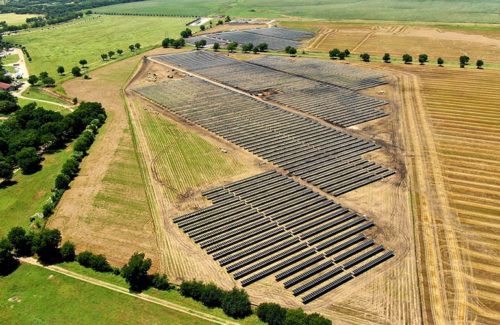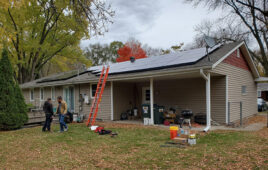Earlier this week, Texas Governor Abbott signed a series of bills into law that will benefit the Texas solar industry, including SB 398, SB 63 and SB 760. These bills will help to clarify rules around decommissioning solar sites and strengthen consumer protection.
SEIA also helped to defeat provisions in SB 3 which would have required solar assets on the grid to also pay for ancillary services and other grid reliability costs which would have unfairly and wrongly targeted solar as the cause of the Texas grid outages in February 2021.
The bills that passed will go into effect on September 1, 2021.
“SEIA is thrilled to deliver a successful legislative session to the Texas solar industry. SEIA led on SB 398, which offers a variety of consumer protections while also underscoring the importance of the competitive market. This legislation will make sure solar customers have information they need to make informed decisions and will prohibit municipalities in addition to homeowner association boards from unreasonably restricting energy independence. These protections are hugely important for the rooftop solar market and will help to bring even more jobs and solar to Texas,” said Nakhia Crossley, counsel and central region director for SEIA, in a statement. “SEIA also worked to ensure that new rules around decommissioning will not stifle the growing utility-scale solar market. These new rules will ensure responsible decommissioning of solar projects when they reach the end of their useful life. While unfounded attacks against solar were defeated, we’re not out of the woods yet. We will continue to engage with the Public Utility Commission of Texas to ensure they are accurately characterizing the benefits of clean, reliable, and affordable solar energy.”
News item from SEIA






The bills passed handily, now let’s see how the PUC in Texas handles the language of these bills and actually what final ruling will be set for the conglomerates under the ERCOT umbrella. There was quite a bit of a shake up in the power structure of the PUC and ERCOT, only time will tell if the message soaked in or is it a “different name” same action scenario, waiting for another weather event to test all of this talk, legislation, to see if proper action has been taken. El Paso learned, perhaps ERCOT has also. The ‘bean’ counters look at cost per unit as a criteria. Unfortunately, there doesn’t seem to be a deep dive into (every) component of every function of an operation to determine if there isn’t cheaper technology with better temperature specifications for less cost to replace old field devices and stock with. I remember pressure, level, flow transducers becoming ‘mature’ and although these items were perfectly good to handle the job and its operation demands, after somethings been manufactured over a couple of decades, the cost per item shoots up as new models are released for retail consumption. It is these cases where it is less costly over the long run, to replace old equipment with new equipment and be ‘proactive’ instead of finding out better quality parts exist for less and find one’s self as ‘reactive’. I wish both Texas and California the best, it’s going to be a bumpy ride no matter what.